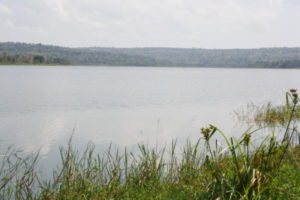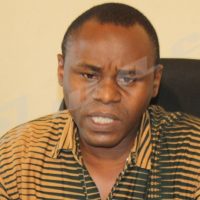The invasion by the water hyacinth and pollution threaten this lake shared by Burundi and Rwanda. The diversion of the Akagera River from Rwanda is the cause of this threat, say local residents.

Rweru River threatened by water hyacinth and pollution
“We saw this plant for the first time since Akagera river left its bank to flaw into Rweru Lake,” says Sadick Nyandwi, Chairman of the Association of Muyinga Fishermen.
“This plant is a calamity, a curse. It spreads very quickly,” says Aloys, another fisherman met in Giteranyi. “We have seen these plants invade our lake since 2012. In a short period of time, it invaded almost the whole coast and part of the lake, says Aloys.
It causes serious problems. “We realize that fish production considerably reduced,” he says, without giving figures. Indeed, adds Nyandwi, fish cannot reproduce in an area which is polluted or invaded by this invasive plant.
He warns that “If nothing is done immediately, this lake may fade in less than five years.” He calls on the government and the benefactors to put in place ways to destroy this invasive plant.
Celestin Ngendakumana, the chief of Masaka Zone of Giteranyi commune, says the situation is precarious: “All waste carried by Akagera River flaws now into Lake Rweru”.
A regional issue
“We delivered a report to Burundi high authorities,” says Aline Manirabarusha, Governor of Muyinga province. She didn’t give many details.
Cyprien Havyarimana, Chairman of the Burundian Office for the Protection of the Environmental (OBPE), says he is aware of this situation.
“We visited the lake. The situation is alarming “He argues, in turn, that the Akagera River has actually deviated from its banks. According to him, all the problems emanate from the other side: “Before, the Akagera used to directly flaw into Lake Victoria.”
On the side of the Burundian coast, a buffer zone occupied by fixative and fodder grasses was created, he adds. And fishermen and residents are organizing activities to manually uproot this plant.
Contacted through the telephone, Emmanuel Ndorimana, Director of Water and Sanitation at the Ministry of the Environment, says the issue is known and adds that it is complicated: “This is border issue between two countries. So, it becomes regional,” he says.
For him, the solution was easy. However, given the current relations between Burundi and Rwanda, it will take time. “Authorities are dealing with this issue” says Ndorimana.
Rénovat Ndabashinze translated by Lorraine Josiane Manishatse


















 IWACU Open Data
IWACU Open Data

